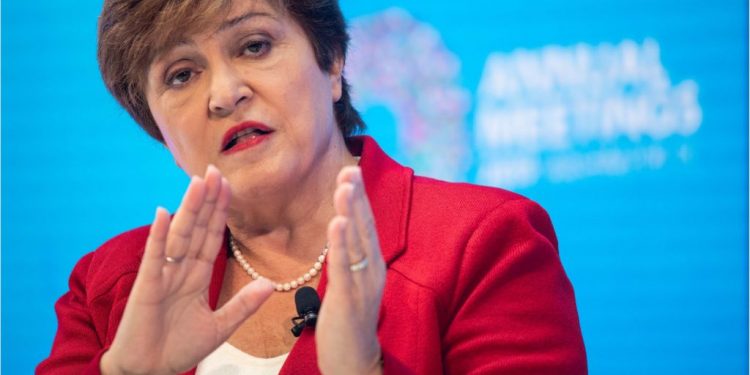The world must do everything in its power to reverse a dangerous and ever-widening gap that has emerged between rich and poor countries as a result of the pandemic, IMF Managing Director Kristalina Georgieva stressed during a recent media roundtable.
We must do everything in our power to reverse this dangerous divergence—especially because some parts of the world are moving to the new climate and digital economy, and large parts will be left behind in getting there. This is a major risk and potential historic missed opportunity!” she said in remarks at the press event.
Read More:
The distribution of fiscal support measures and now vaccines is dramatically different across countries. As the United States ramps up vaccines to end the health crisis, only a handful of African nations have launched vaccination campaigns.
The depth of divergence
Even though the IMF has forecasted 5.5 percent growth for the world in 2021, 150 economies are not going to reach their pre-pandemic level this year. There will still be 110 economies that won’t reach their pre-pandemic level in 2022.
About 50 percent of emerging markets and developing economies that were converging towards advanced economies per capita income over the last decade are expected to diverge over the 2020–2022 period, the MD highlighted.
“You can call it the lost decade. It may be a lost generation,” she warned.
Three ‘R’s
The MD laid out three key priorities: winning the race between a mutating virus and vaccines, boosting the resolve of policymakers to continue support until the recovery is durably underway, and revitalizing international cooperation when it comes to easing the debt burden on emerging markets and low-income countries.
“One thing is clear: future generations will not look kindly on those who underestimate the dangerous divergence facing us today,” she said.
A consequential year
Speaking at the Warwick Economic Summit to about 2000 students from 60 countries, IMF Deputy Managing Director Antoinette Sayeh reiterated the MD’s key message on divergence.
“2021 can be the most consequential year of our lifetimes,” she said. “If we can come together and sow the right policy seeds today, we can exit the crisis with minimal scarring and build the foundation of a 21st century economy.”

